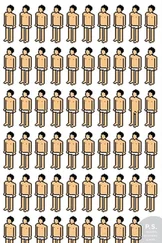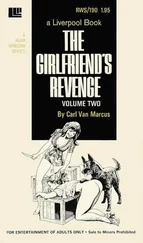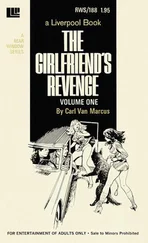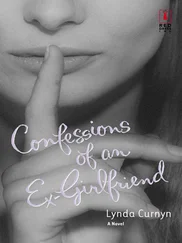Karen
Solid evidence confirms her fears. "I wrote this. Yes. Didn't I?"
"Okay…"
"And what I say in it is real. It exists. Yes." There's a defiant note to her voice.
"I don't doubt you, Karen, not at all." Silence falls between them. Karen fidgets with a Tetris game Megan gave her to help improve her dexterity. Richard looks at her averted eyes. He asks quietly, "What is it—who are they—them—whoever?"
"I'd rather not if that's okay. My ankles hurt."
"You know who they are?"
She looks up: "I do; I don't. I tried to run away and I got caught. They're not going to let me get away again."
"What do you mean, 'get away'? And who's they?"
Karen wishes she could be more forthcoming. At that moment Megan bounds into the room, bumping into a chair as she does so. "Ouch. Hi kids. Ready for some stretching, Mom?"
Karen is all too glad to have her talk with Richard end. "Sure.Let's go." Richard's stomach flutters; he feels like he's being shipped off to war.
Mom.
Lois.
Owls—nothing has changed. Or maybe not. Lois seems slightly hardened, probably the result of Megan's shenanigans. Lois isn't quite as vain as she once was. The outfits are there but gone is the constant preening. George—Dad—comes home early from the shop. He sits beside Karen's bed, dewy-eyed.
Karen likes 1997 people because they're never boring—all these new words they have—the backlogs of gossip, of current events, and of history.
"What was it like?" George and everybody else keeps asking, "What's it like to wake up?"
Like? Like nothing. Honestly. Like she woke up and it was seventeen years later—and her body was gone.
But her answers are consistently lame to deflect them away from darker ideas that are returning to her memory. Her day-to-day memory is fine. Some people from UBC gave her some psychological memory tests. Her memory is as good as the day she passed out. She even remembers the page number of her last algebra assignment. But the darkness? It's taking its time.
She knows people are expecting more from her. A certain nobility is demanded—extreme wisdom through extreme suffering. People tread lightly around her.
"I'm not made of uncooked spaghetti, everyone. Jesus—come a little bit closer, okay? I promise I won't splinter."
One afternoon Wendy is having a coffee on Lonsdale with Pam. Wendy has decided she needs to know what Pam saw during the stereo dream. "Pam, remember when you OD'd last Halloween. I've always wondered what you were seeing inside your head. Your brain readouts looked like wheat blowing in the wind. Do you remember?" "Oh yeah. It was wild. I don't think I've thought about it muchsince then." She puts more sugar into her cup. "It was like a bootleg video of natural disasters and it even had a theme song. Remember when we used to do choir? Oranges and lemons, say the bells of Saint Clement…"
"Go on."
"There was this empty freeway. Texas. Very clear about that. And mud. Like a monsoon—in Japan. Again, no mistaking that. There were fields in Africa—all up in flames. And then this gross one—these rivers in Bangladesh or India—just full of bodies and fabric. The last thing was a big digital clock sign—Florida. Definitely Florida. The time was 00:00 and it was 140 degrees out." Pam puts down her cup. "Wow. I can't believe I remembered all that. But I did. Me with a brain like a damp paper towel."
"It sounds beautiful in an eerie way."
"It was. And it was real—it was no movie. That's for sure."
Later that afternoon Wendy contrives a reason to visit Monster Machine—dropping off some long-ago borrowed books to Hamilton. "Got time for a quick coffee?"
"For you, the Moon."
A few minutes later in the staff coffee room during a lull enhanced by canned music that Hamilton describes as "Eleanor Rigby played on a didgeridoo," Wendy brings up Hamilton's Halloween overdose, and like Pam, he remembers it vividly yet is surprised he hasn't thought of it since. "Texas—a freeway—all quiet, like a sci-fi film. Oh, and music—a children's choir singing 'Oranges and Lemons.' What else—mud. Lots of mud. Slopping onto Tokyo. Some fields in Africa burning. Bodies in a river in India …" Hamilton's eyes aren't fixed on Wendy but are distant and reminiscing: "And the time and temperature in Florida. Dade County? Zero o'clock and 140 degrees Fahrenheit. There."
Wendy is immobilized with shock. "Wendy—what's up? You look like you've seen our most recent monster creation—come on—I'll show you."
They stumble into the main shop full of urethane and fiberglass odors. Hamilton leads Wendy to a decapitated torso with a handsticking out from the neck. Wendy nods approval but her mind is elsewhere.
The news cameras and TV trucks left a while ago, having given up attempts at garnering photos. Linus snaps some black-and-white head shots of Karen and her recently dyed and styled hair. From this selection, one photo is chosen, copied and given out to the press at large. Nobody in the family has given interviews.
Karen's body, hidden by day under a Canucks hockey jersey, is slowly returning to life—fingers, then hands and then forearms; ankles, feet and then the knees. Richard and Megan and a trained therapist oversee many hours each day of bending, rotating and stretching Karen's sad little body, porking up as it may be. Richard helps Karen relearn to write her signature and he's shocked at how difficult the effort is for Karen. Her round girlish signature of yore is now an angular nursery school blotch.
Lois makes sure Karen eats; her stomach, essentially unused to solids for nearly two decades, can accept only the tiniest amounts of food, but Lois, always happy to merge science and dining, is happy to see the amounts rising gram by gram and Karen's body filling out.
Richard has bought an extraordinarily expensive Norwegian wheelchair equipped with a hammocklike sling that allows the passenger, Karen, to travel across bumpy surfaces such as forest paths, and so outside the two of them trek. It's too late in the year for tourists; their only intrusion is a quick greeting from a strolling neighbor; passing dogs lick Karen's face. The chair's sling makes Karen feel utterly dependent and while Richard tries to yank the chair up a rocky patch, Karen's eyes tear; she misses nature.
"Richard, just give it a rest a second," she says. She collects her breath. "Just look at the trees. So alive. So pure. So blameless and strong." Light dapples the leaves of the undergrowth; Karen shivers.
"What is it,Kare?"
"Richard, look at my body. I'm—I'm nothing anymore. I'm a monster—some monster cooked up by Hamilton and Linus. I'm ateenager trapped in an old crone's body. I've never even lived, barely. What if you get tired of taking care of me all the time?"
Richard stills the chair and lifts Karen out of it, then cradles her in his lap while looking at the canyon and river and tall fir trees below. Karen calms down and apologizes: "Time out. That was uncool."
"Cool? Karen, please. Cool is not an issue. Coolness is for eighteen-year-olds." He rethinks that statement in light of her mental age, and he holds her close to him. "Karen, I hear your voice and it's like having jewels rustling across my heart." He pitter-pats her chest with his fingers; Karen loves touching and she loves Richard's sentimental blurts.
Karen leans her head on Richard's shoulder; it still takes so much effort to lift it. "You're being sentimental," she says. She feels odd being so intimate with an older man. Mentally her taste is what a teenager might choose: a first year college guy; a steady North Van guy who plays hockey on weekends. She has had to radically redefine her vision of sex. And Richard, lying there every night, holding her and spooning with her. She has felt him go hard a few times and sensed him pulling away in silent awkwardness, pretending to be asleep. But in his sleep he is hard and he does press against her and between her legs. She finds herself enjoying this—wanting this—but she is unable to imagine herself making love again. She hasn't even been able to ask Wendy about the medical side of all this, but she knows she'll soon be doing so.
Читать дальше










